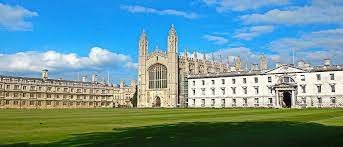In Ghana, the pursuit of higher education is a critical step for many in achieving their professional and personal aspirations. However, the road to furthering one’s education is not always straightforward, especially for individuals who hold Higher National Diploma (HND) certificates or have graduated with Second Class or Third Class degrees.
This blog post explores the criteria these institutions consider for admission and lists those that accept HND certificates, Second Class, and Third Class degrees for Master’s degree programs.
Criteria For Admission Into Schools and Universities in Ghana
The journey toward obtaining a Master’s degree in Ghana for those with HND certificates, Second Class, or Third Class degrees involves meeting specific admission criteria set forth by institutions. These criteria vary from one institution to another but generally include a combination of academic achievements, supplemental coursework, and additional requirements designed to ensure that all students can succeed at the graduate level. Below are common criteria that applicants should be aware of:
- Supplemental Courses or Bridging Programs: Some institutions may require candidates, especially those with HND certificates or lower-class degrees, to complete certain prerequisite or bridging courses. These programs aim to bring all students up to a similar level of preparedness for the rigors of a Master’s degree.
- Work Experience: Relevant work experience can be a significant advantage for applicants, especially for those not holding a First Class or Upper Second Class degree. Many programs value practical industry experience and may consider it during the admissions process.
- Personal Statement or Motivation Letter: A well-crafted personal statement that outlines the applicant’s academic interests, professional goals, and reasons for choosing the specific Master’s program can greatly enhance their application. It provides a chance to make a compelling case for admission beyond mere grades.
- Letters of Recommendation: Letters from academic instructors or professional supervisors who can attest to the applicant’s capabilities, work ethic, and suitability for graduate study are often required. These recommendations provide insight into the applicant’s potential as a graduate student.
- Interviews: Some schools and universities conduct interviews (either in person or via electronic means) to better understand the applicant’s aspirations, motivations, and readiness for their chosen program.
Understanding and preparing for these criteria can significantly improve an applicant’s chances of being admitted into a Master’s degree program in Ghana, regardless of their initial degree classification or diploma.
Read Also: Fully Funded Scholarships in USA for International Students 2024/2025
List Of Schools in Ghana that Accept HND Certificates, Second Class and 3rd Class for Masters Degree Programs
Fortunately, a growing number of schools in Ghana have evolved to offer more inclusive admission criteria, opening doors for a broader range of applicants. Below is a carefully curated list of reputable schools that welcome students from diverse academic backgrounds into their Master’s degree programs:
1) Accra Institute of Technology (AIT)
Known for its flexible entry requirements, AIT offers several Master’s degree programs, particularly in the fields of Engineering, Information Technology, and Business Administration, for candidates with HND certificates and lower class degrees, provided they meet other specified criteria.
2) Ghana Technology University College (GTUC)
GTUC is progressive in its approach to admissions, accepting HND holders and graduates with Second Class and Third Class degrees into its postgraduate programs. The institution places a strong emphasis on bridging courses for those who may need additional academic preparation.
3) Kwame Nkrumah University of Science and Technology (KNUST)
While traditionally known for its stringent admission criteria, KNUST has opened its doors wider, offering selected Master’s programs to HND holders and those with lower-class undergraduate degrees. Candidates may be required to undergo an assessment or complete bridging courses.
4) University of Cape Coast (UCC)
UCC offers a range of Master’s programs that admit students with HND certificates and lower degree classifications. The university values the diverse experiences students bring to their academic community and provides support through preparatory courses when necessary.
5) University of Education, Winneba (UEW)
UEW welcomes applicants from a variety of educational backgrounds for its Master’s degree programs, including those with HND certificates and lower degree classifications, emphasizing education and arts disciplines.
Each of these schools has its own set of admission requirements and processes tailored to accommodate students from various academic backgrounds.
List Of Universities in Ghana that Accept HND Certificates, Second Class and 3rd Class for Masters Degree Programs
Universities across the nation recognize the value and potential of students coming from diverse educational backgrounds, including those with HND certificates and Second or Third Class undergraduate degrees. This shift marks a significant move towards inclusivity and broadening access to postgraduate education. The following universities have established themselves as welcoming institutions for such students:
1) University of Ghana (UG)
As the oldest and largest university in Ghana, UG offers a variety of Master’s programs that are accessible to students with HND certificates and those who graduated with Second Class or Third Class degrees. The university emphasizes the need for supplementary coursework for certain programs to ensure all students meet the academic standards required for successful completion.
2) Ashesi University
Recognized for its commitment to excellence and leadership in Africa, Ashesi University accepts students with diverse academic backgrounds into its Master’s degree programs, including those with HND certificates and lower degree classifications. Applicants may need to demonstrate their readiness through additional preparatory work or relevant work experience.
3) Ghana Institute of Management and Public Administration (GIMPA)
With a strong emphasis on leadership, management, and public administration, GIMPA offers several Master’s programs that are open to HND holders and graduates with lower degree classifications. The institute values the practical experience and unique perspectives these students bring to their academic community.
4) University of Professional Studies, Accra (UPSA)
UPSA is well-known for its business, accounting, and finance programs. It extends opportunities for Master’s studies to individuals with HND certificates and those who have achieved Second Class or Third Class degrees, provided they meet other specific entry requirements.
5) Central University
Central University has a wide range of Master’s programs, particularly in the fields of Business Administration, Public Health, and Theology, that are designed to be inclusive. It accepts applications from those with HND certificates and lower undergraduate degree classifications, acknowledging the richness of diversity in academic and professional experiences.
These universities represent a portion of the higher education institutions in Ghana that are leading the way in democratizing access to postgraduate education. By accepting a broader spectrum of qualifications, they not only enhance opportunities for individual advancement but also contribute to the development of a more diverse and skilled workforce.
FAQS
Can I use an HND certificate for a Master’s degree in Ghana?
Yes, you can! Ghanaian universities often recognize HNDs for Masters programs, especially in related fields. However, it’s crucial to research and contact the specific programs you’re interested in to confirm their entry requirements, as these can vary.
Can I do a Master’s program with a third-class degree in Ghana?
While it’s less common, some universities in Ghana might consider applicants with third-class degrees for specific Masters programs. However, strong academic performance is still crucial. Highlighting any relevant work experience, skills, and a compelling statement of purpose can significantly strengthen your application.
Can I apply for a Master’s degree with my HND certificate?
Yes, you can! As mentioned earlier, several universities in Ghana recognize HNDs for Masters programs. However, research specific programs and contact their admissions offices to confirm their stance on HNDs and any additional requirements they might have.
Can I apply for a Master’s degree with a second-class degree?
Absolutely! Universities in Ghana generally accept applicants with second-class degrees for various Masters programs. The specific class (2:1 or 2:2) might have different weight depending on the program and university.
Can I do a Master’s with a second-class lower degree in Ghana?
Yes, you can! While a second-class upper (2:1) might be preferred for some programs, several universities in Ghana also consider applicants with second-class lower (2:2) degrees. Research specific programs and highlight any additional strengths in your application such as relevant work experience, research skills, or exceptional references.
Conclusion
In Ghana, a number of schools and universities accept HND (Higher National Diploma) certificates, second class degrees, and third class degrees for admission into master’s degree programs. The Kwame Nkrumah University of Science and Technology, for example, offers a range of postgraduate programs that are accessible to students with a variety of qualifications. Additionally, the University of Ghana offers a one-year conversion program for HND holders who wish to pursue a master’s degree. Therefore, for those who have earned an HND or other similar qualification, a master’s degree is certainly within reach.






